Strategy to boost economic growth direly needed: OIC chief
Muslim bloc’s 57 member states have faced 'sustained economic decline', says Hissein Brahim Taha in Istanbul summit
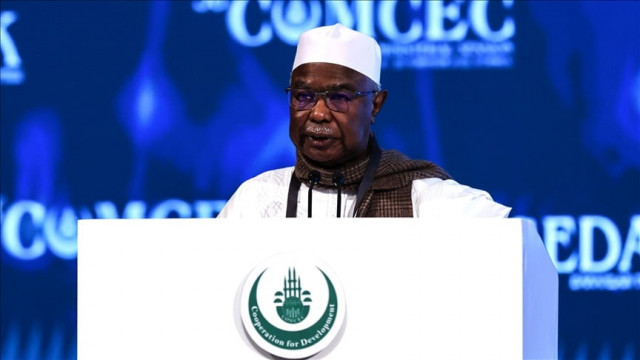
Muslim nations are in “dire need of strategy” to “increase economic growth, both sustained and inclusive,” the head of the Organisation of Islamic Cooperation (OIC) said on Monday in Istanbul.
Hissein Brahim Taha, addressing the 38th Committee for Economic and Commercial Cooperation (COMCEC) standing meeting in the Turkish metropolis, said the disruption to energy supplies due to the Russia-Ukraine war had exacerbated the economic stress left behind by the Covid-19 pandemic.
He said the Muslim bloc’s 57 member states have faced “sustained economic decline, along with tourism activities.”
“Before the OIC nations could find a clear way out of the pandemic, the Russian-Ukraine war exacerbated the situation (due to) disruption in the energy supply chain,” Taha told the meeting, which was also attended by Turkish President Recep Tayyip Erdogan and Vice President Fuat Oktay.
“This very conflict shows that the OIC nations need to increase food production,” he added.
Urging more trade and investments among members of the bloc, Taha called on the Islamic Development Bank (IsDB) to come up with “comprehensive, supportive efforts” to meet food security challenges among the bloc’s members.
Also read: China censors rare nationwide protests
Pointing to recent floods in Pakistan which caused the death of over 1,700 people and economic losses of around $30 billion, Taha said climate change had also displaced millions and resulted in a situation that “aggravated OIC nations,” including Pakistan and some African countries.
For the OIC to “quickly overcome these challenges,” Taha said the Muslim bloc needs to “focus on investments in the agriculture and industrial sectors.”
Calling for accelerating the bloc’s action program for 2025, Taha urged the member states to integrate the program into their national policies.
“Create synergies in financial and technologies system and promote innovative projects of young people in economic sectors,” Taha told the 57-member Muslim bloc.
“Intra-OIC cooperation is needed more than ever,” he stressed.
Acknowledging the support given to the bloc by the people and government of Türkiye, Taha said: “We pray for peace and stability in Türkiye. We reject all forms and manifestations of terrorism.”
Digital transformation towards economic growth
Zubairu Dada, Nigeria’s minister of state for foreign affairs, told the meeting that African nations “remain committed to the implementation of goals” of the Committee for Economic and Commercial Cooperation.
“We must continue to strive to remove barriers against intra-trade of OIC member states,” he told the Muslim bloc’s economic cooperation wing.
Also read: Canada launches new Indo-Pacific strategy, focus on 'disruptive' China
Saying poverty is one of the main hurdles to the development of African nations, Dada called on OIC member states to focus on agriculture, communication, finance, digital transformation, and alleviating poverty.
On the pandemic’s lingering effects on national and global economies, including the African continent, Dada said it had exacerbated the situation on the African continent “due to the loss of employment opportunities.”
Urging the Islamic Development Bank to rise to the occasion “to give much-needed support towards a faster and more sustainable social economic recovery,” Dada said that to “sustain its relevance,” the Committee for Economic and Commercial Cooperation should pursue “initiatives that take up challenges facing our member states … (and) work closely with member states to find a role for itself to address those issues which hinder our growth.”
Haji Mohd Amin Liew Bin Abdullah, minister at the prime minister’s office in Brunei Darussalam, told the meeting that while the COVID-19 pandemic and other geopolitical changes “continue to affect our economies,” the Muslim bloc should “focus on supporting our people, especially vulnerable people and integrate them into the economic activities.”
He stressed the digital transformation of economies, saying it “leads to good-quality data” and “capacity building and training programs, in achieving economic growth.”
Muhammad Sulaiman Al Jasser, head of the Islamic Development Bank, said the bank has “launched strategic program to help the recovery of different nations.”
Acknowledging that some Muslim nations are “looking towards good recovery, many nations saw good recovery,” he added: “The crisis in eastern Europe has again affected economies.”
He said the pandemic and other conflicts had “affected the flow of capital to developing nations which also led to food insecurity.”
Also read: Clashes in Shanghai as Covid protests flare across China
Al Jasser said in the present financial climate, “in addition to the pandemic, increase in energy rates, led to increase in interest rates … led to recession of investment and (created) employment problems.”
“The increase in interest rates (by national governments) would affect their (member nations) creditors,” he warned.
He underlined the “need to cooperate to have innovative solutions, more intra-trade and collaborations.”

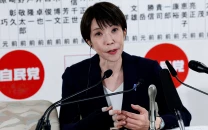
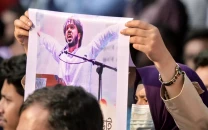
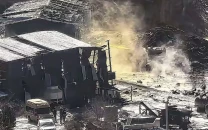
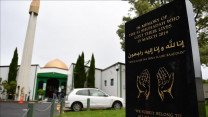
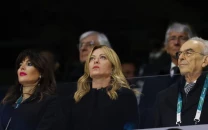
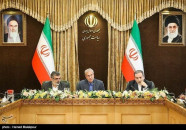












COMMENTS
Comments are moderated and generally will be posted if they are on-topic and not abusive.
For more information, please see our Comments FAQ